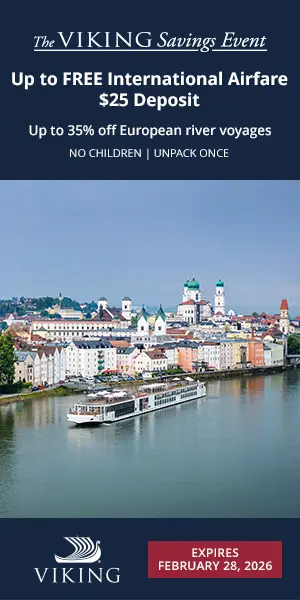What is Eco-Friendly Travel Today?
by Daine Taylor
Leigh Barnes of Intrepid Travel discusses what’s involved in booking sustainable, eco-centric trips for clients. Photo: Intrepid
In the last few years, there has been a significant increase in travellers seeking more sustainable, eco-friendly trips. More and more people are opting to take on the role of the responsible traveller, with sustainability and the ecological impacts of their visit at the forefront of their minds.
As this growing trend continues to expand into other segments of the industry, advisors should be aware of eco-friendly travel, understand what it is, and know how best to suggest it to their clients.
To that end, Leigh Barnes, chief customer officer, for Intrepid Travel, discussed with Travel Market Report what eco-friendly travel is, and what advisors need to know before they start selling.
Travel Market Report: What kind of travel do you typically sell?
Leigh Barnes: We are an adventure travel company and specialize in culturally immersive, small-group tours in over 120 countries across the world. Our ethos is focused on sustainable, experience-rich travel that benefits the people and places that we visit, while fostering cross-cultural understanding between customers and locals while having a great time. From trekking the Inca Trail in Peru, doing an authentic food tour of Northern Spain, or taking a small-ship adventure cruise in Greece, getting off the typical tourist trail is at the heart of what we do.
TMR: What clientele do you tend to cater to most (families, solo, luxury, adventure, etc.)?
LB: Sustainable, adventure travel is core to what we offer at Intrepid. Over 50% of our travelers are solo travelers and we have a range of solo-only trips. Plus, we have a range of active and cycling trips, family tours, solo-parent trips, food tours and women’s-only expeditions.
Lately, we’ve been seeing an increase in higher average selling price with most of our trade partners and more of a concentration on comfort-style trips, which indicates that clients are still looking for adventure, but with a softer landing.
TMR: Have you noticed an increased demand for eco-friendly/sustainable travel?
LB: Last year, Intrepid saw growth of 21% globally, which we attribute largely to an increased demand for this style of travel experience. Customers are becoming increasingly savvy and socially conscious consumers, and they expect this from us. In January, North America saw 24% growth year-on-year, with a 43% growth in our tailor made business with industry partners.
TMR: What does eco-friendly tourism mean to you? How do you address your clients’ needs and concerns while adding value?
LB: Eco-friendly tourism means traveling in a responsible way, such as choosing tour companies and airlines who are prioritizing the environment and benefitting the communities you’re visiting by taking local transport or staying at locally owned hotels. It’s also having an awareness of how your footprint impacts the place you are visiting. Making sure to pack a reusable tote bag, water bottle and coffee cup to avoid using single-use plastic while on your travels.
Climate change is a real issue within the industry, and we aim to reduce our carbon footprint to make this as easy as possible for our clients. We have been a carbon-neutral business since 2010, and this year, we are aiming to become a climate-positive business. This means we’ll be removing more carbon from the atmosphere than we actually create as a business.
We also recently partnered with Offset Earth, a monthly subscription service where travelers can offset their carbon footprint throughout the year, not just while they travel. The initiative will plant trees in a forest in Kenya on behalf of the subscriber, and for every tree planted, Intrepid will plant another tree on behalf of the client.
TMR: In your opinion, what is the appeal of eco-friendly tourism?
LB: If you can do good when you travel, why wouldn’t you? Travel is such a privilege and we believe that travelers should leave a place better than when they visited it.
TMR: Do you attribute the recent interest in sustainable travel to a temporary trend or niche, or do you see this as the direction the industry at large is heading?
LB: Sustainable travel is no longer a niche market and I genuinely believe the larger industry is headed that way, because consumers will continue to expect it as their awareness continues to grow.
We became a B Corp Certified business in 2018, to show that the business takes sustainable travel seriously. It means we meet the highest standards of verified social and environmental performance, public transparency, and legal accountability to balance profit and purpose.
While there are over 100 certification schemes in the travel industry, there aren’t any that take a holistic view of the impact a whole business can have on people and the planet, except B Corp certification. Customers can feel assured and trust that when they travel with us, they are traveling responsibly and benefiting the communities we visit on trips, which is what they have come to expect from us.
We no longer want to be the best travel company in the world, we want to be the best travel company for the world.
TMR: What factors do you look for when booking eco-friendly travel?
LB: Take local transport where you can; limit the amount of internal flights when you are in-destination; and don’t take things at face value. Look into important things, like animal welfare, and avoid supporting any activity which is not natural for the animal, such as taking tiger selfies or riding elephants. I recommend traveling with a B Corp certified company, as it means they meet the highest social and environmental standards, and examine their supply chains.






















